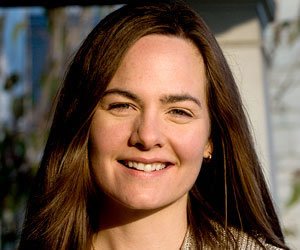While medical school interviews can be quite conversational, thinking in advance about the questions you will face can help you articulate your unique story more effectively. Most interviews revolve around the interviewer getting to know you better, but there will likely be a number of questions that give the ill-prepared applicant pause. Below are several strategies to help you prepare answers to these tricky questions:
“Why do you want to study medicine?”
This question will be asked at almost every medical school interview that you attend, but it can be difficult to answer unless you have reflected on your goals ahead of time. Clearly explaining why you wish to become a physician—without being cliché—is paramount to distinguishing yourself. To prepare for this question, review your personal statement for inspiration. Aim to incorporate details that are not mentioned in your personal statement, but that are related to experiences or endeavors that you have described in your essay or in the remainder of your application. This can add depth to your admissions portfolio outside of what you have already explained on paper. In addition, truly attempt to define the type of medical career that you want (i.e. community medical practice, medical education, research, etc.). Weave in your career aspirations when you answer this question to connect your pursuit of medical school to your ultimate goals.
medical school
The Million Dollar Question
Interview season. The time of year that roads and skies swarm with the best and brightest medical students to all corners of the country taking aim at the next step in their training – residency. Believe it or not, behind the shiny brochures, extravagant dinners and polished powerpoint slides, residency programs are just as nervous about attracting top talent as you are about getting your top choice.
The interview trail is usually a blur of dry cleaning bills, rental cars, and the smell of breath mints masking cheap coffee mixed with nervous sweat. The broken record of the obligatory “strengths and weaknesses” question loops in your head. One of the more terrifying moments in the day comes when an interviewer asks: “What questions do you have for me?” Regardless of who asks it–the intern only four months above you in training or the gatekeeping program director–you know you have to ask something. So why not make it count?
The Importance of Disability Insurance for the Young Physician
The thrill and responsibility of holding someone’s life in your hands, the ability to act under pressure, and the satisfaction of doing good in the world—these are among the qualities that attract people to the medical profession. In a culture that’s quickly diminishing the value of established professions, there’s still a universal appeal to becoming a doctor.This doesn’t mean seeking a career in medicine is without its obstacles. The importance of a thorough education—at least four graduate years—cannot be understated. Add in the time it takes to complete an internship and a residency, and it’s easy to see why a medical path can be too daunting for many. On average, it takes about 11 years for a medical student to become an independent doctor. If students begin medical school in their 20s, they won’t begin to see patients as a physician until they’re in their 30s. Add to that an average price tag of $166,000 in student loans for medical school, and even the most gung-ho medical students begin to balk. Suffice it to say, a career in the medical field is a huge time and financial investment.
What You Should Know: Connecting With Pediatric Patients
What You Should Know is an ongoing series covering a range of informational topics relevant to current and future healthcare professionals.
Even for student doctors who are in training to be pediatricians or specialists in pediatric health, connecting meaningfully with these small patients can sometimes be difficult. However, this connection is necessary to establish if a doctor’s goal is to give their patient the best care possible.
It is helpful, then, to take a look at what experts say about how doctors can connect to their pediatric patients.
Choose Your Undergrad Research Position Wisely
Author’s Note: It is widely believed (and for good reason) that undergraduate research positions are highly competitive. This belief leads to the misconception that obtaining any research position is the goal.My experience with undergraduate research position applicants has taught me that having a genuine interest in the position is one of the most important tips that I can give potential undergraduate researchers. This importance is echoed by numerous colleagues I’ve spoken with on the subject over the years, and those interviewed while writing Getting In.
The misconception that any research position will do can also have lasting negative effects on the success the student has once they are in the position. Over the years I have found that students instinctively know whether they are interested in a potential position before they apply for it. Those students who take any position just to be done with the search end up in disappointing experiences, which can affect how enthusiastic their letter of recommendation is at the end.
This article provides undergraduates with a new way of approaching their search for a research position by explaining why the choices they make at the application stage are so important for getting an interview and for their success in the lab afterwards. It’s relevant because it focuses on a topic that is almost never mentioned in the mainstream advice on how to find a research position.
Chronicles of a Med Student: Enjoy Every Moment of Med School
One of the things I enjoy most about writing this med school column is that I get to tell a unique story from a unique point of view. No two people will have the same set of experiences in med school, and I’m so glad I get to share mine. It helps me in two ways: I get to keep track of all of my crazy happenings, and I get to pause for a moment and reflect on all of them. Medical school, I’ve found, progresses so fast. Honestly, the nervous excitement I felt on my first day still lingers as though it happened yesterday. It has really flown by, and to quote some users on the forums section of the site, “residency will be here after what seems like the blink of an eye”. I’m not to residency yet obviously, but at the rate things are going, I have no evidence against this statement. It will probably be the fastest four years of my life (actually, only 3.5 now! See how quickly that went?). I’m still so used to replying to the question “So how many more years do you have left?” with 4. But it’s zipping by.
The Changing Culture of Medical Education
Transitioning to medical school is a significant change for most students; this naturally makes it a source of excitement, anxiety, stress, and even fear. Being a successful college student will not necessarily translate to success in graduate/professional school, although many of the same or similar strategies will help. Ultimately, adjusting to medical school is going to depend on the individual student and their school; each curriculum will present unique challenges and each student will handle them in a unique way. Although curricula vary among schools, some concepts are similar across the board. Perhaps the most uniform component of twenty-first century medical school curricula is the fact that they are constantly seeking to improve; thus the adage that “change is life’s only constant” seems to be true, at least of medical schools.
Three New Year’s Resolutions for Medical Students
Winter break is the perfect time for medical students to take a step back to relax, re-assess, and re-engage for the remainder of the academic year. Below are three resolutions that all medical students should make to motivate themselves for the grueling months ahead:
1. “I will schedule time for self-care”
Many medical students simply do not spend enough time caring for their most valuable asset—themselves. Given the intense academic and clinical workload that medical school involves, it is common for students to lose sight of the importance of their own wellbeing. Use winter break to carefully review your schedule for the upcoming semester and deliberately schedule in self-care “appointments.” Self-care appointments can range from daily meditation for just a few minutes to a leisurely cup of coffee with a friend. The key is to choose those activities that help you de-stress and relax.
Seize Your Undergrad Research Interview: Ask the Questions That Matter
When selecting your classes each semester you apply a methodical approach. You no doubt consider several factors such as: What will satisfy major requirements? What will help you prepare for the MCAT and add weight to your transcript? And, of course, what sounds the most interesting? Essentially, you don’t play “registration roulette” and find yourself in advanced string theory when you really need a cell biology course.
Yet, when it comes to an undergrad research interview, most students don’t know that they need a solid strategy for asking questions that will allow them to evaluate the position. Instead, many approach interviews with a single goal in mind: get an offer to join the lab. Although this is a good goal keep in mind, it should not be your sole objective in a research interview.
The Other Preparations to Make For Clinical Clerkships
The transition to clinical clerkships in medical school comes after two years of lectures, in-class exams, and national board exams. Without a doubt, it is an exciting transition. It is a key stage in the development of a physician, allowing the student to see real patients and to learn from practicing professionals. Clinical rotations requires the student to critically think and to apply the vast amount of information learned in the classroom to new situations. The goal is to learn to come up with a list of differential diagnoses, use the correct confirmatory test, and develop a treatment plan. This is what many students believe will be the bulk of their clinical learning during the third and fourth years. As a result, many students spend most of their time focusing only on the academic preparation for clinical rotations and do not sufficiently prepare themselves to stand out in equally important, but non-academic ways.
Chronicles of a Med Student: One’s Not Such a Lonely Number
Medical school is becoming routine to me now—which is great. I’ve finally found my rhythm after a few months and feel comfortable with my learning style and studying methods. And it keeps me busy enough during the workweek. I try to accomplish most of my studying during the week so that I have the weekends to not study and actually have a life. But here’s the thing: my study habits don’t necessarily line up with those of my peers, which can leave me with some long weekends. Instead of wondering if am covering all of my bases (or if I’m forgetting to do this reading or that reading), I take a break. I can’t possibly study all the time, so I’m forced to have confidence in myself to do well. I understand that I sound quite crazy complaining about having free time, because who–especially a medical student–has ever done that?
The Medical School Interview: They Aren’t All The Same!
“What kind of interview will it be?”
This is not a question applicants ever asked 10 or 15 years ago but often do now. Every year, more medical schools now conduct Multiple Mini Interviews (MMI) while most still conduct “traditional” one-on-one interviews. A few medical schools also conduct group interviews with either groups of students who are interviewed together or several faculty who interview one student together. Therefore, when thinking about the medical school interview process, it’s important to be aware of what you might encounter on the interview trail.
How To Get Great Letters of Evaluation for Medical School
Letters of evaluation are a vital component of the medical school application process. Since many applicants have high levels of academic achievement and robust extracurricular experiences, it is important for students to obtain outstanding letters of evaluation. Below are several key points to remember when requesting such letters:
Q&A with Physician Writer Christine Montross
Dr. Christine Montross is Assistant Professor of Psychiatry and Human Behavior and the Director of Counseling Resources at the Warren Alpert Medical School of Brown University. She works as a staff psychiatrist at Butler Hospital in Providence, Rhode Island. Before attending medical school at Brown, Dr. Montross graduated from the University of Michigan with a Master of Fine Arts in poetry, and undergraduate degrees in French and Natural Resources.
Difficult Interview Questions: Learning To Hit A Curveball Out Of The Park
By Michelle Finkel, MD with CrispyDoc
You put your heart and soul into your compelling, charismatic personal statement; you showcased your accomplishments and drive to succeed in your activities section; and you demonstrated the endorsement of respected faculty allies in your letters of recommendation. Now your hard work has paid off and helped you get a foot in the door: You’ve been invited to interview at your dream medical school or residency program.
Five Things to Consider in Choosing an MCAT Prep Course
With the Medical College Admissions Test (MCAT) undergoing major changes in 2015, the first revamp in over two decades, aspiring medical students are faced with new uncertainty in how to prepare for the crucially important exam. Many students are turning to dedicated MCAT prep courses to supplement their self-directed studies, only to be stymied by a market crowded with many alternatives. Here are some important questions to ask when selecting an MCAT prep course.
The Ultimate Student Loan Repayment Guide for Doctors
$176,000.
It’s a number newly-minted physicians or those in the process of becoming a doctor should know.
No, it’s not the average salary of those in the medical field or the cost of an average physician’s home.
It’s also not something fun like the price you can pay for a new Audi R8 when you graduate from medical school (although that would be super nice.)
Chronicles of a Med Student: Time for a Reality Check
I was about to burst with excitement the minute I started medical school. I’m pretty sure I was actually giddy: like so many other pre-meds, I had dreamt of the day when I would finally put my pretty white coat on and actually start learning about things I cared about (that’s not to say everything I’d learned previously was useless—it absolutely wasn’t, but it wasn’t what I wanted). It felt like the longest road just to get to this point and I couldn’t even begin to fathom what was to come. It really was like the journey had ended…instead of just begun.
3 Ways to Prepare for the USMLE Step 1 Exam
The USMLE Step 1 exam is arguably one of the most important tests in a medical student’s career. While a student’s score on Step 1 is taken into consideration amongst many other factors, the score still plays a major role in determining a student’s competitiveness for residency in certain specialties. After all, once a student has applied to a specialty, his or her Step 1 score will partially determine which types of institutions he or she will have the opportunity to interview at. Below are three general strategies to help you prepare for the USMLE Step 1 exam:
Balancing Professional School and Life
Professional school is hectic. Very hectic. Most programs require the dedication that is equivalent to … Read more


















